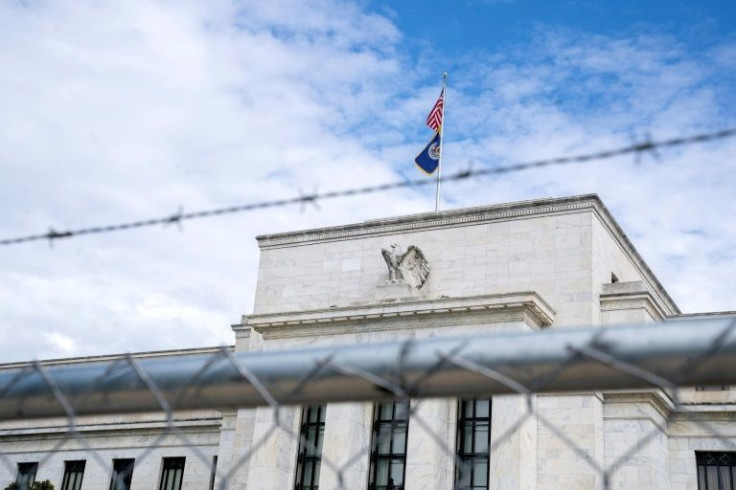A Eurozone Recession And Slower Chinese Growth Could Ease The Pace Of Fed Hikes
An impending recession in the eurozone and a persistent slowdown in the Chinese economy could push the U.S. economy into a recession sooner rather than later. And that will ease the pace of U.S. interest rate hikes and, eventually, force the Fed to begin cutting rates.
For different reasons, China, the world's second-largest economy, and the eurozone, the world's second-largest economy, aren't doing well these days.
According to Trading Economics, China's economy shrank by 2.60% in the most recent quarter, far worse than the 0.60% decline of the U.S. economy. That's thanks to the continuation of the COVID-19 lockdowns. Beijing has turned them into another vehicle for monitoring and controlling the lives of its Chinese citizens.
But at the same time, the lockdowns have limited their spending ability. For instance, Oxford Economics expects consumer spending to be hammered down in China's major cities, including Shanghai, with more than 23 million people.
Then there's the bursting of the country's property bubble, which has created a credit crunch, as banks are counting their losses, which Bloomberg assesses to be $350 billion. That has recently forced the country's central bank to lower interest rates a couple of times, in sharp contrast with central banks of other major economies, including the U.S., which have been hiking them.
Still, lower interest rates may not forestall the abrupt slowdown in China's economy, which could end up experiencing its first actual recession in decades.
Things do not look that bad for the eurozone. The eurozone's economy has thus far fared better than China's and America's, growing at 0.50% in the most recent quarter.
But that is expected to change for a couple of reasons. One, the eurozone economy is at the epicenter of the economic war between Russia and the West, still relying heavily on Russia for its energy needs. As a result, European consumers have seen far more significant price hikes in their energy bills compared to their American and Chinese counterparts. And things will become far worse if new policy initiatives by the West, like the G-7 price hikes, end up pushing energy prices even higher.
Then there are the looming interest rate hikes by the European Central Bank (ECB), which could tighten liquidity in the eurozone, adding further pressure to the region's growth and eventually pushing it into a recession.
The abrupt slowdown in China's economy, combined with an impending recession in the eurozone, may help ease inflation pressures, as is the strong dollar.
And that could be a game changer for the Federal Reserve, as lower inflation will move the U.S. economy in the desired direction. As a result, the nation's central banks may have to moderate the pace of interest rate hikes and eventually reverse them, setting the stage for an economic recovery.
Wall Street may begin warming up to this prospect, preparing itself for the recession and the recovery following.

© Copyright IBTimes 2024. All rights reserved.






















